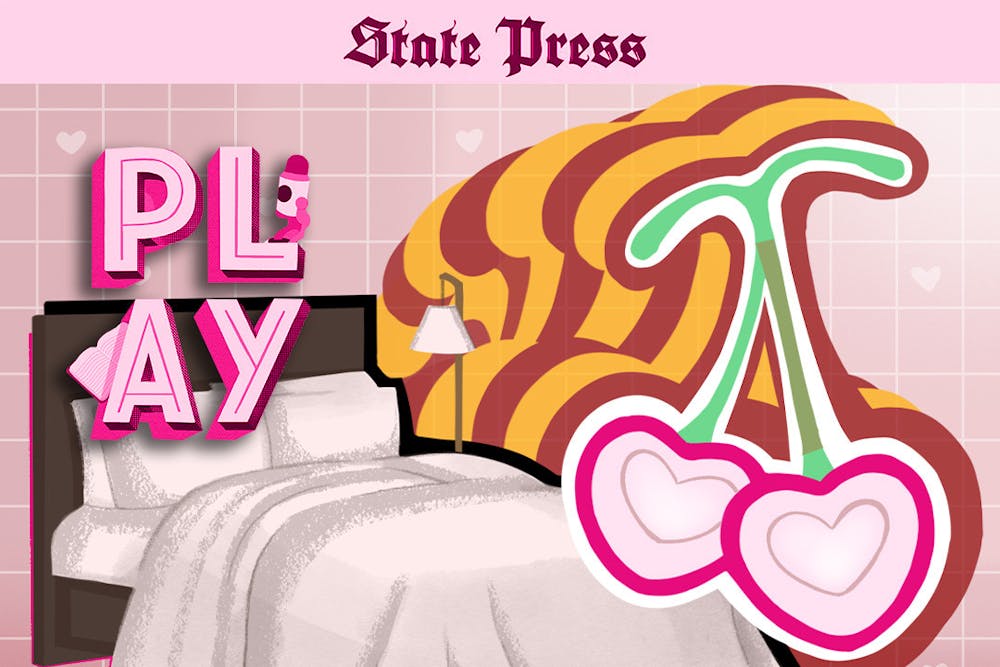State Press podcast transcripts are produced by a third-party transcription service and may contain errors. The official record for State Press podcasts is the audio. Please listen to the audio as this transcript may only contain summary forms of the given episode.
Connor Greenwall:
Welcome back to the podcast! This week, we interviewed a reporter on music activism.
Ava Peguese:
Also, Devils in the bedroom and the importance of sexual health education.
Connor Greenwall:
I’m Connor Greenwall.
Ava Peguese:
I’m Ava Peguese, and this is State Press Play.
Connor Greenwall:
I'm here with politics reporter Pippa Fung. Pippa is a sophomore studying Journalism and Mass Communication. She is here today to talk about her article, from Masters of War to American Idiot, how music and activism stand the test of time. Pippa, how are you doing today?
Pippa Fung:
I'm good. How are you?
Connor Greenwall:
I'm doing pretty good. Thank you. So to start off, what inspired you to write this article?
Pippa Fung:
Yeah. So I actually, recently was at the Green Day concert, and they talked a lot about, you know, politics is here, and how we can be unified through music. And so that kind of got me thinking about other kinds of music I listen to that are also politically involved, and how just across different genres and time, people have been giving the same message. And I wanted to hear what other students thought about that.
Connor Greenwall:
Did you enjoy the Green Day concert?
Pippa Fung:
I did!
To hear more from Pippa, please tune in to State Press Play.
READ MORE: From 'Masters of War' to 'American Idiot': How music and activism stand the test of time
Ava Peguese:
Good morning, afternoon, or evening folks! Today I’m here with Steve McKoy, a biomedical engineering major in their sophomore year. Steve is also the programming director of Devils in the Bedroom, a paraprofessional student organization teaching students important information about sexual health and wellness. As university students, we could all use some extra learning about our bodies. We’re going to be in them forever, after all. Let’s learn how to stay healthy while our brains are still impressionable. Steve, what inspired the creation of Devils in the Bedroom?
Steve McKoy:
Well, devils in the bedroom was actually created in the 90s. The students there saw a need for sexual health education because there is no group or organization on campus to this day, other than devils in the bedroom, that mainly deals with sexual health topics. So in the 90s, people got together and said, Hey, we're just going to start educating and providing resources.
Ava Peguese:
Steve, how do you guys define sexual health and wellness?
Steve McKoy:
So sexual health largely revolves around having safe sex, so that's things like primarily preventing the spread of sexually transmitted infections, but that's also things like making sure that you have proper boundaries, making sure you're not getting pregnant if you don't want to get pregnant, making sure that all models of consent are followed. So we're really helping people approach the safest sex possible, and that's for physical safety, mental safety, emotional safety, and spiritual safety. Whatever you feel best.
Ava Peguese:
With less and less sex education in schools, what are some common misconceptions about sexual health that you guys encounter?
Steve McKoy:
Ooh, we get a whole lot. There are- There's just a lot of misinformation around the use of, I'd say, condoms. There's a lot of misinformation as to how you wear them, how you should store them. I hear a lot that people double up on condoms, which is not good. It actually makes both condoms more likely to break. It's worse than using one. So that's definitely one we hear. We also hear some misinformation about menstruation. Consent and boundaries is a big one, um, and just various topics that get talked a lot about a lot without really enough research to back it up.
To hear more from Steve, please tune in to State Press Play.
Ava Peguese:
And that’s all for this week’s State Press Play. I’m Ava Peguese.
Connor Greenwall:
And I’m Connor Greenwall. State Press Play is produced by our podcast desk editor, Kylie Saba. Our original music is by Ellie Willard and Jake LaRoux.
Ava Peguese:
Special thanks to our managing team, Morgan Kubasko and Matthew Marengo.
Connor Greenwall:
You can check out all these stories and more on statepress.com. See you next week




